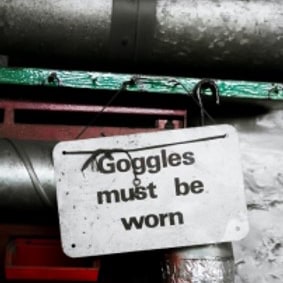When it comes to processing industries and large-scale facilities, they face challenges and risks related to various hazards. One of the major risks they face is the unexpected release of reactive gases and liquids from processes involving hazardous chemicals like anhydrous ammonia.
Due to the potentially catastrophic impact of such risks, OSHA (Occupational Safety and Health Administration) issued the Process Safety Management program that we’ll discuss in this blog.
What is Process Safety Management (PSM)?
OSHA issued a regulatory standard, Process Safety Management, or PSM, for all processes involving Highly Hazardous Chemicals (HHCs). This standard enables employers to assess, evaluate, and manage potential hazards associated with anhydrous ammonia used in their industries.
Key Elements of the PSM Program
PSM program consists of 14 elements that ensure effective safety and efficiency in an industry. Those elements are as follows:
1.Employee Participation
All employees must participate in PSM programs.
2.Process Safety Information
Managers are required to write process safety information before conducting a process hazard analysis.
3.Process Hazard Analysis
For process hazard analysis (PHA), managers are required to assess, evaluate and control potential hazards involved in their processes.
4.Operating Procedures
Also known as Standard Operating Procedures, managers develop and implement written SOP documents to minimize discrepancies.
5.Training
6.Managers must train workers on procedures and associated hazards.
7.Contractors
Contractors working on (or near) HHCs must train themselves on emergency procedures and other aspects of PSM.
8.PSSR
New and modified facilities require a PSSR (Pre-Startup Safety Review) before starting operations.
9.Mechanical Integrity
This element ensures the correct installation, design, and operation of process equipment.
10.Hot Work
Managers must issue hot work permits for those operations involving open flames or sparks (welding, soldering, thermal spraying, etc.).
11.Management of Change
If there are any changes to a process, managers must evaluate them first to ensure there are no adverse effect on workers’ health and safety.
12.Incident Investigation
If there’s an incident during a process, managers must conduct thorough investigations.
13.Emergency Planning and Response
Managers must ensure adequate training of workers in emergency planning and response action.
14.Compliance Audits
Managers must conduct and report compliance audits periodically.
15.Trade Secrets
Managers must provide complete information required for PSM compliance, even if it’s a trade secret.

These elements play a significant role in minimizing the severity and likelihood of an unwanted incident. OSHA inspectors look for each element when reviewing the PSM program of a facility.
Implement PSM Program at Your Facility with Ice Cold Consulting
Ice Cold Consulting is a leading consulting firm that helps facility managers ensure regulatory compliance. Our team identifies limitations in your system operations and offers opportunities for improvement to help you comply with safety and efficiency standards.
With our PSM program management, you can implement all key elements of PSM in your processes and avoid any hazards, incidents, and penalties. Our team also performs regular compliance audits and mechanical integrity audits to ensure the safe and seamless operation of your mechanical assets. For more details, contact us now.




